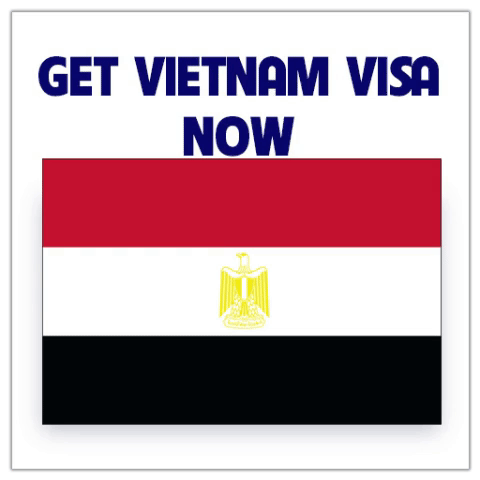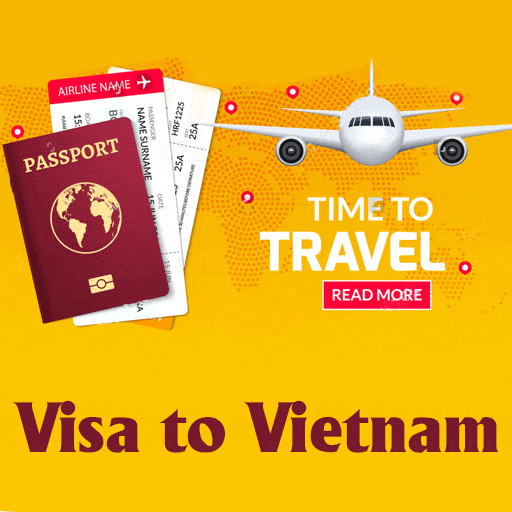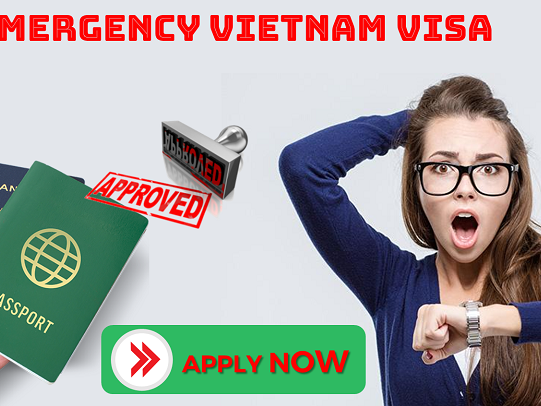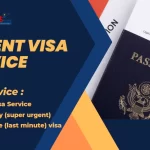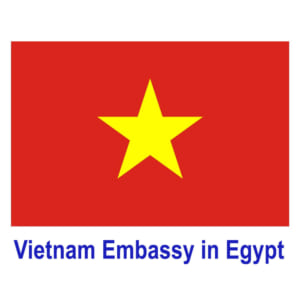The allure of Vietnam, with its rich culture, breathtaking landscapes, and thriving economy, has captivated the hearts of many, making it a sought-after destination for expats, retirees, entrepreneurs, and travelers alike. As we step into 2025, understanding the intricacies of obtaining a long-term visa is crucial for those looking to immerse themselves in the Vietnamese way of life. This guide is your roadmap to How to Apply for Long-Term Vietnam Visas (2025 Guide), providing a detailed exploration of the eligibility criteria, application processes, and expert tips to navigate the complexities of Vietnam’s immigration system.
Understanding Vietnam’s Long-Term Visa Options for 2025
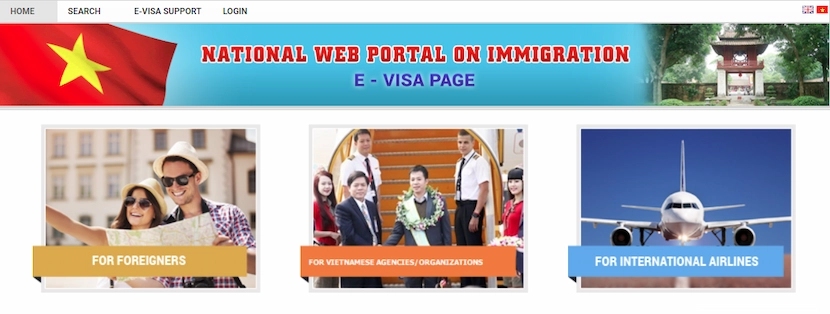
Before diving into the application process, it’s essential to grasp the various types of long-term visas available for Vietnam. The country offers a range of visa options catering to different needs, from business and work to investment and family reunification.
Types of Long-Term Visas Available
Vietnam provides several long-term visa categories, each with its unique requirements and benefits. The most common include the DN (Business Visa), LD (Work Visa), DT (Investor Visa), and TT (Dependent Visa). Understanding the nuances of each category is vital in selecting the one that best suits your purpose.
The DN Visa is designed for individuals entering Vietnam for business purposes, such as attending conferences, negotiating contracts, or establishing a business. This visa typically requires sponsorship from a Vietnamese company and is initially valid for 3 months to 1 year, with the possibility of extension.
On the other hand, the LD Visa is intended for foreign nationals employed by a company operating in Vietnam. Obtaining an LD visa involves a more rigorous process, necessitating a work permit issued by the Ministry of Labor, Invalids and Social Affairs (MOLISA). The validity of the LD visa is usually tied to the duration of the work permit, up to a maximum of two years.
The DT Visa is tailored for foreign investors who have invested capital in Vietnam according to the country’s laws. The validity period of this visa is contingent upon the investment amount and the specific type of investment. DT visas are known for offering longer terms of stay and simplified renewal processes.
Lastly, the TT Visa is issued to spouses and children (under 18) of foreign nationals holding valid LD, DN, or DT visas. This visa allows dependents to reside legally in Vietnam for the same duration as the principal visa holder’s visa.
Choosing the Right Visa Category
Selecting the appropriate visa category is a critical step in the application process. It requires a thorough assessment of your situation and the purpose of your visit. Misrepresenting your intentions can lead to visa refusal or deportation, underscoring the importance of choosing the correct visa type.
To make an informed decision, it’s advisable to consult with a legal professional or a reputable visa agency that can provide guidance based on your specific circumstances. They can help you navigate the complexities of the Vietnamese immigration system and ensure that you comply with all the necessary requirements.
Implications of Visa Choices
Your choice of visa has significant implications for your stay in Vietnam. It not only determines the length of your stay but also affects your ability to work, invest, or bring your family members into the country. Therefore, it’s crucial to understand the terms and conditions associated with your chosen visa category.
Eligibility Requirements for Long-Term Vietnam Visas in 2025

Each visa category comes with its set of eligibility requirements that applicants must meet. Understanding these requirements is essential to ensure a smooth application process.
General Eligibility Criteria
While specific requirements vary across visa categories, there are some general criteria that apply to most long-term visas. These include having a valid passport with at least 6 months of validity remaining, no criminal record, and sufficient funds to cover expenses during your stay in Vietnam.
For certain visa categories, such as the LD and DT visas, additional requirements like a work permit or proof of investment are necessary. It’s also common for applicants to be required to provide documents demonstrating their qualifications, employment contract, or the legitimacy of their investment.
Specific Requirements for Each Visa Type
Beyond the general criteria, each visa category has its specific requirements. For instance, applicants for a DN visa need to provide documents demonstrating the business purpose of their visit, such as an invitation letter or contract. In contrast, LD visa applicants must submit a valid work permit issued by MOLISA, along with their employment contract and professional qualifications.
DT visa applicants are required to provide proof of their investment in Vietnam, such as an investment license or capital contribution certificate. The amount of investment often influences the visa’s validity period.
Documentation and Evidence
Regardless of the visa category, applicants must provide comprehensive documentation to support their application. This may include notarized documents, official translations, and evidence of financial stability. Ensuring that all documents are in order and meet the Vietnamese immigration requirements is crucial for a successful application.
Step-by-Step Guide: Applying for a Long-Term Vietnam Visa
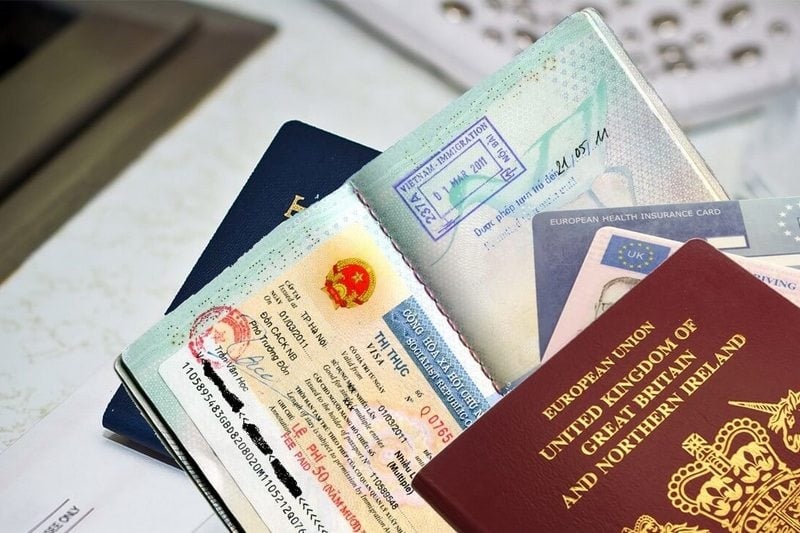
The application process for a long-term Vietnam visa involves several steps, from determining your visa type to submitting your application.
Determining Your Visa Type
The first step is to carefully assess your situation and choose the most appropriate visa category. This decision should be based on the purpose of your visit and your eligibility for different visa types.
Once you’ve selected your visa category, it’s essential to gather all the required documents. The specific documents needed will depend on your visa type, but generally, you’ll need a valid passport, proof of your purpose for visiting Vietnam, and evidence of your financial stability.
Gathering Required Documents
Gathering the necessary documents is perhaps the most critical step in the application process. This may involve obtaining a work permit, investment certificate, or documents proving your relationship with a principal visa holder.
It’s also important to ensure that all your documents are properly notarized and translated into Vietnamese or English, as required by the immigration authorities. This can be a time-consuming process, so it’s advisable to start early.
Submission of Application
After gathering all the required documents, the next step is to submit your application. You can do this at a Vietnamese embassy or consulate if you’re applying from outside Vietnam, or at the immigration office if you’re already in the country.
The submission process may involve filling out application forms, paying visa fees, and in some cases, attending an interview. It’s crucial to follow the instructions provided by the relevant authorities carefully to avoid any complications.
Required Documents for Your Vietnam Long-Term Visa Application
The documents required for a long-term Vietnam visa application vary depending on the visa category. However, there are some common documents that most applicants need to provide.
Passport and Photographs
A valid passport with at least 6 months of validity remaining is a universal requirement. You’ll also need to provide passport-sized photographs that meet the specifications outlined by the Vietnamese immigration authorities.
Proof of Purpose and Eligibility
Depending on your visa category, you’ll need to provide documents that prove your purpose for visiting Vietnam. This could be a work permit, investment certificate, or documents demonstrating your business activities.
You’ll also need to provide evidence of your eligibility, such as educational qualifications, employment contract, or proof of financial stability.
Additional Supporting Documents
In addition to the primary documents, you may need to provide additional supporting documents. These could include a criminal record check, medical certificate, or proof of address in Vietnam.
Visa Application Submission: Where and How to Apply
The method of submitting your visa application depends on your location and the specific requirements of your visa category.
Applying from Outside Vietnam
If you’re applying from outside Vietnam, you’ll need to submit your application at a Vietnamese embassy or consulate. This involves filling out the application forms, providing the required documents, and paying the visa fees.
Applying from Within Vietnam
If you’re already in Vietnam and need to extend your stay or change your visa status, you can apply at the immigration office. This process may involve submitting additional documents and paying fees associated with your application.
Using a Visa Agency
For many applicants, using a reputable visa agency can simplify the application process. These agencies can provide guidance on the required documents, help with the application submission, and in some cases, expedite the processing of your visa.
Vietnam Long-Term Visa Processing Time and Costs (2025)
The processing time and costs associated with a long-term Vietnam visa can vary depending on the visa category and the speed of processing you require.
Standard Processing Times
Standard processing times can range from a few days to several weeks or even months for more complex applications. For instance, obtaining a work permit for an LD visa can take several weeks to a few months.
Expedited Processing Options
For an additional fee, many applicants opt for expedited processing to receive their visa more quickly. This can be particularly useful for business travelers or those with urgent needs.
Costs and Fees
The costs associated with a long-term Vietnam visa include the visa application fee, processing fees, and in some cases, additional charges for expedited processing or other services. It’s essential to factor these costs into your budget when planning your application.
Extending Your Vietnam Long-Term Visa: Procedures and Requirements
For many individuals, extending their stay in Vietnam beyond the initial visa validity is necessary.
Eligibility for Visa Extension
The eligibility for visa extension depends on your visa category and the specific circumstances of your stay. Generally, you can apply for an extension if you’re still in Vietnam and meet the necessary requirements.
Application Process for Extension
The process for extending your visa involves submitting an application to the immigration office, providing required documents, and paying the necessary fees. The specific documents needed may include a valid passport, proof of your current visa status, and evidence of your reasons for extending your stay.
Timing Your Extension Application
It’s crucial to time your extension application correctly to avoid overstaying your visa. Applying too late can result in penalties, while applying too early may not be permitted.
Common Mistakes to Avoid When Applying for a Vietnam Long-Term Visa
Applying for a long-term Vietnam visa can be complex, and there are several pitfalls that applicants should be aware of.
Inaccurate or Incomplete Documentation
One of the most common mistakes is submitting inaccurate or incomplete documentation. This can lead to delays or even rejection of your application.
Misrepresenting Your Purpose
Misrepresenting your purpose for visiting Vietnam can have serious consequences, including visa refusal or deportation. It’s essential to be honest and transparent in your application.
Not Following Instructions
Failing to follow the instructions provided by the immigration authorities or visa agencies can result in unnecessary complications. It’s crucial to read and understand the requirements carefully.
Conclusion
Obtaining a long-term Vietnam visa is a significant step towards experiencing all that Vietnam has to offer. By understanding the various visa options, eligibility requirements, and application processes, you can navigate the complexities of the Vietnamese immigration system with confidence. Whether you’re drawn to Vietnam for business, work, investment, or family, this guide provides a comprehensive roadmap to How to Apply for Long-Term Vietnam Visas (2025 Guide). With careful planning and the right guidance, you can embark on your Vietnamese journey, ready to explore the rich culture, stunning landscapes, and vibrant communities that this beautiful country has to offer.

✈️ VisaOnlineVietnam – Your Trusted Partner for Vietnam Visas 🇿🇦🇻🇳
Are you a South African citizen planning a trip to Vietnam? With its breathtaking landscapes, vibrant cities, and rich culture, Vietnam is a must-visit destination. Before your journey begins, make sure your Vietnam visa is ready!
👉 VisaOnlineVietnam.com offers a fast, secure, and hassle-free online visa service tailored for South African travelers.
💼 Our Services:
- Tourist Visas
- Business Visas
- Urgent Emergency Visas (4–8 hours or within 30 minutes)
- Visa on Arrival (VOA) – available for South African passport holders
📄 How It Works:
- Apply online at: VisaOnlineVietnam.com
- Receive your visa approval letter via email
- Fly to Vietnam and get your visa stamped at the airport
- Enjoy your trip!
📝 Requirements:
- Valid passport (at least 6 months before expiration)
- Two passport-size photos
- Flight information
- Visa application form
- USD 25 cash for stamping fee (for single entry)
🌟 Why Choose VisaOnlineVietnam?
✅ Over 20 years of experience
✅ 24/7 customer support
✅ Fast and secure online processing
✅ Trusted by thousands of travelers
📞 Contact Us:
- 🌐 Website: https://visaonlinevietnam.com
- 📧 Email: [email protected]
- 📱 WhatsApp: (+84) 968 18 77 18
- ☎ USA Hotline: +1(972)-666-0676
🌍 Don’t delay your travel plans – apply for your Vietnam visa today with VisaOnlineVietnam!


